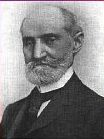Natrum Muriaticum suited For the anaemic and cachectic; whether from loss of vital fluids – profuse menses, seminal losses – or mental affections.
Natrum Muriaticum has Great emaciation; loosing flesh while living well ( Abrotanum, Iodium ); throat and neck of child emaciate rapidly during summer complaint ( Sanicula ).
Great liability to take cold ( Calcarea, Kali carb. ).
Irritability: child cross when spoken to; crying from slightest cause; gets into a passion about trifles, especially when consoled with.
Awkward, hasty, drops things from nervous weakness ( Apis, Bovista ).
Marked disposition to weep; sad weeping mood without cause ( Pulsatilla ), but consolation from others < her troubles. Headache: anaemic, of school girls ( Calcarea phosphorica ); from sunrise to sunset; left sided clavus; as if bursting; with red face, nausea and vomiting before, during and after menses; as though a thousand little hammers were knocking in the brain during fever; > by perspiration.
Headache; beginning with blindness ([Iris], Kali bichromicum ); with zig-zag dazzling, like lightening in eyes, ushering in a throbbing headache; from eye strain.
Lachrymation; tears stream down the face whenever he coughs ( Euphr. ).
Hay fever: squirming sensation in the nostril, as of a small worm; brought on by exposure to hot sun or intense summer heat.
Sensation as of a hair on the tongue ( Silicea ).
Natrum Muriaticum Tongue: mapped, with red insular patches; like ringworm on sides ( Arsenicum, Lachesis, Mercurius, Acid nitricum, Tarax. ); heavy, difficult speech, children slow in learning to walk.
Constipation: sensation of contraction of anus; torn, bleeding, smarting afterwards; stool, dry, hard, difficult, crumbling ( Ammonium carb., Magnesia muriatica ); stitches in rectum ( Acid nitricum ); involuntary, knows not whether flatus or faeces escape ( Aloe, Iodium, Acid Muriaticum, Oleander, Podophyllum ).
Natrum Muriaticum Urine: involuntary when walking, coughing, laughing ( Causticum, Pulsatilla, [Scilla.]); has to wait a long while or urine to pass, if others are present ( Hepar, Acid Muriaticum ); cutting in urethra after ( Sarsaparilla ).
Seminal emission: soon after coition, with increased desire; weakness of organs with retarted emission during an embrace; impotence, spinal irritation, paralysis, after sexual excesses.
Pressing, pushing towards genitals every morning; must sit down to prevent prolapsus ( Lilium, Murex, Sepia ).
Fluttering of the heart; with a weak, faint feeling < lying down ( Lachesis ).
The heart’s pulsations shake the body ( Spigelia ).
The hair falls out when touched, in nursing women ( Sepia ); face oily, shiny, as if greased ( Plb., Thuja ).
For the bad effects: of anger (caused by offence); acid food, bread, quinine, excessive use of salt; of cauterization of all kinds with the silver nitrate; to grief, fright, vexation, mortification or reserved displeasure ( Staphysagria ).
Hangnails: skin around the nails dry and cracked ( Graphites, Pet. ); herpes about anus and on borders of hair at nape of neck (in bend of knees, Hepar, Graphites ).
Warts on palms of hands (sore to touch, Natrum carb. ).
Natrum Muriaticum Dreams: of robbers in the house, and on waking, will not believe to the contrary until search is made ( Psorinum ); of burning thirst.
Fever blisters, like pearls about the lips; lips dry, sore and cracked, ulcerated ( Acid nitricum ).
Painful contractions of the hamstrings ( Ammonium muriaticum, Causticum, Guaiac. ).
Craving for salt ( Calcarea, Causticum ); great aversion to bread.
Eczema; raw, red, inflamed, especially in edges of hair; < from eating too much salt, at sea shore, or from ocean voyage. Urticaria, acute or chronic; over whole body; especially after violent exercise ( Apis, Calcarea, Hepar, Sanicula, [Urt.]). Intermittents: paroxysm at 10 or 11 a. m.; old, chronic, badly treated cased, especially after suppression by quinine; headache, with unconsciousness during chill and heat; sweat > pains.
Relations. – Complementary: to, Apis, acts well before and after it.
Natrum Muriaticum is the chronic of Ignatia, which is its vegetable analogue.
Is followed by Sepia and Thuja.
Cannot often be repeated in chronic cases without an intercurrent, called for by the symptoms.
Should never be given during fever paroxysm.
If vertigo and headache be very persistent, or prostration be prolonged after Natrum, Nux will relieve.
Aggravation. – At 10 or 11 a. m.; at the seashore or form sea air; heat of sun or stove; mental exertion, taling, writing, reading; lying down.
Amelioration. – In the open air ( Apis, Pulsatilla ); cold bathing; going without regular meals; lying on right side (on painful side, Bryonia, Ignatia, Pulsatilla ).

